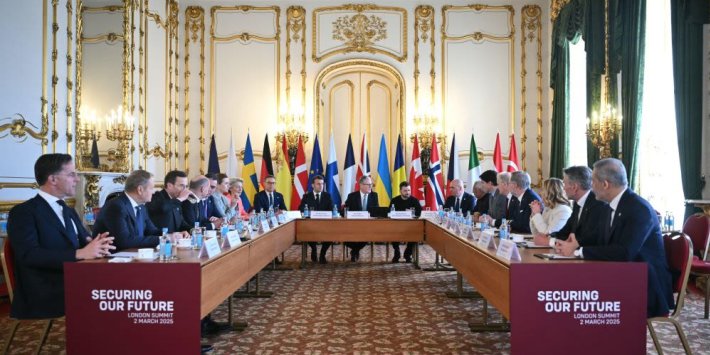The United Kingdom has shown extraordinary determination. In a pivotal summit held in London, Prime Minister Keir Starmer announced, with clear resolve, that the UK is ready to put ‘boots on the ground and planes in the air’ to defend Ukraine. But, what does this truly mean for international relations and the everyday lives affected by the ongoing conflict?
The gathering included leaders from 19 countries, with Ukrainian President Volodymyr Zelensky at the forefront. Each leader brought unique perspectives and stakes to the table. Starmer highlighted a coalition of the willing. This coalition signifies not just military readiness, but also a collective commitment to peace, grounded in past lessons and current realities.
This multifaceted approach raises a crucial question: Can military strength really bind peace? In years past, agreements like the Minsk Protocols were viewed as a temporary bandage that could barely hold the wound shut. Leaders seem to agree they cannot abide another weak peace deal. For vulnerable nations, the pains of war linger long after the guns go quiet.
Starmer’s assertion resonates deeply. He stated, ‘we cannot accept a weak deal like Minsk, which Russia can breach with ease.’ This moment reflects a collective frustration among European nations. The past haunts efforts for peace, pushing them towards ambition and, perhaps, some desperation.
Looking ahead, Ukraine’s strength is paramount. Leaders spoke of boosting Ukraine’s military capabilities. Isn’t this a strategic chess game, positioning pieces for future negotiations? Ukraine deserves to negotiate from a position of power, and this proactive stance is crucial for regional stability.
The notion of a ‘coalition of the willing’ is fascinating. Countries must contribute meaningfully to a shared goal. It’s a call to arms for Europe—every nation must step up. This shared responsibility creates a heavy burden but also fosters unity. In an age of division, this solidarity could indeed change the landscape.
But can everyone contribute equally? Some nations, thanks to their unique circumstances, might choose not to engage. It opens the floor to an uncomfortable thought: Is it fair that some nations could benefit from peace while others bear the brunt of the fight? Starmer emphasizes that those willing will intensify planning with urgency— thus addressing the necessity of immediate action.
Furthermore, the summit brought to light significant military aid. The UK announced a striking £1.6 billion deal for Ukraine to procure over 5,000 air defense missiles. The decision to manufacture these in Belfast creates jobs. It feels like a lifeline tethered to the future: protection coupled with economic development.
Yet, the dissatisfaction of Baltic nations like Estonia, Latvia, and Lithuania looms large. Their absence at the summit underscores their ongoing struggle with security challenges. Are they being overlooked in this broader strategy? Starmer’s reassurances might help mend bridges, yet the lack of inclusion leads to questions about commitment to regional partners.
Ursula von der Leyen’s remarks at Lancaster House emphasized a vital point—Europe needs to re-arm. Can Europe truly rise to this challenge? If economies are strained, balancing defense spending with national welfare isn’t easy. Budget crunches feel like the unwanted guest at a party nobody wants to entertain.
The stages are set for international collaboration. Starmer’s engagement with US President Trump holds potential key support. Strong US backing could amplify European efforts significantly. The results can be promising, but time is not a luxury for millions affected by the war.
In conclusion, the UK’s readiness to defend a potential peace deal in Ukraine is both bold and ambitious. With many leaders grasping at hope in the shadows of conflict, each statement carries weight. There’s a feeling of urgency—an understanding that the path to peace is fraught with uncertainty. But, is it the right course? The stakes aren’t just numbers in a world report; they are human lives yearning for stability.




